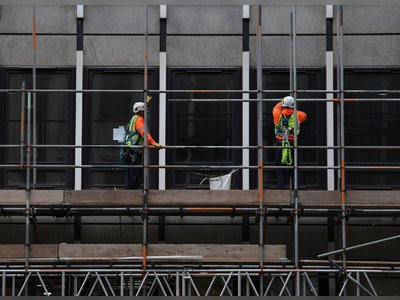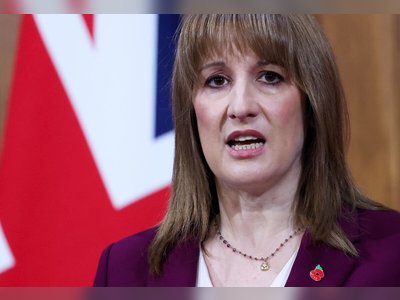UK Government Backs £49 Billion Plan for Heathrow Third Runway and Expansion
Labour government selects Heathrow’s ambitious scheme as basis for runway, terminal and motorway upgrade to boost growth by 2035
The UK government has formally selected Heathrow Airport Ltd’s £49 billion (£33 billion for the new runway and infrastructure plus £15 billion of already-planned upgrades) expansion programme as the basis for its long-awaited third runway.
The decision, announced on Tuesday, marks the culmination of years of uncertainty over one of Britain’s largest infrastructure projects.
The scheme will include a full-length north-western runway, re-routing the adjacent M25 motorway beneath it, and building a new terminal to cater for substantially increased passenger volumes.
Flights from the new runway are expected by 2035, with a planning consent target set for 2029.
The government said it chose Heathrow’s proposal as the “most deliverable option” on the timetable, noting that it scored higher than the rival £25 billion proposal from Arora Group, which omitted some infrastructure costs.
The transport secretary emphasised the expansion will be privately financed and is contingent on meeting strict economic, noise, air-quality and climate tests.
Heathrow’s owners—backed by investors including French, Qatari and Saudi funds—welcomed the decision and called on the regulator and government to provide regulatory clarity by mid-December to maintain momentum.
Airlines, however, voiced concern that the high cost of expansion could drive up airport charges and affect ticket prices.
The government placed strong emphasis on the project’s contribution to the UK’s growth agenda.
Heathrow said its proposal would support as many as 150 million passengers annually and increase aircraft movements toward 756,000 per year under the expanded scheme.
A government policy review accompanying the decision will assess how the runway will align with the UK’s climate commitments and infrastructure priorities.
While the headline cost figure is £49 billion, the majority of the investment is projected to be privately funded.
The government reiterated that taxpayers will not bear construction costs.
The review process will sustain rigorous oversight ahead of the formal planning consent process.
With this endorsement, the Labour government signals a renewed push on infrastructure as central to its economic strategy.
Observers now await detailed regulatory frameworks and investment timelines to ensure the project translates from bold announcement into deliverable reality.
The decision, announced on Tuesday, marks the culmination of years of uncertainty over one of Britain’s largest infrastructure projects.
The scheme will include a full-length north-western runway, re-routing the adjacent M25 motorway beneath it, and building a new terminal to cater for substantially increased passenger volumes.
Flights from the new runway are expected by 2035, with a planning consent target set for 2029.
The government said it chose Heathrow’s proposal as the “most deliverable option” on the timetable, noting that it scored higher than the rival £25 billion proposal from Arora Group, which omitted some infrastructure costs.
The transport secretary emphasised the expansion will be privately financed and is contingent on meeting strict economic, noise, air-quality and climate tests.
Heathrow’s owners—backed by investors including French, Qatari and Saudi funds—welcomed the decision and called on the regulator and government to provide regulatory clarity by mid-December to maintain momentum.
Airlines, however, voiced concern that the high cost of expansion could drive up airport charges and affect ticket prices.
The government placed strong emphasis on the project’s contribution to the UK’s growth agenda.
Heathrow said its proposal would support as many as 150 million passengers annually and increase aircraft movements toward 756,000 per year under the expanded scheme.
A government policy review accompanying the decision will assess how the runway will align with the UK’s climate commitments and infrastructure priorities.
While the headline cost figure is £49 billion, the majority of the investment is projected to be privately funded.
The government reiterated that taxpayers will not bear construction costs.
The review process will sustain rigorous oversight ahead of the formal planning consent process.
With this endorsement, the Labour government signals a renewed push on infrastructure as central to its economic strategy.
Observers now await detailed regulatory frameworks and investment timelines to ensure the project translates from bold announcement into deliverable reality.










